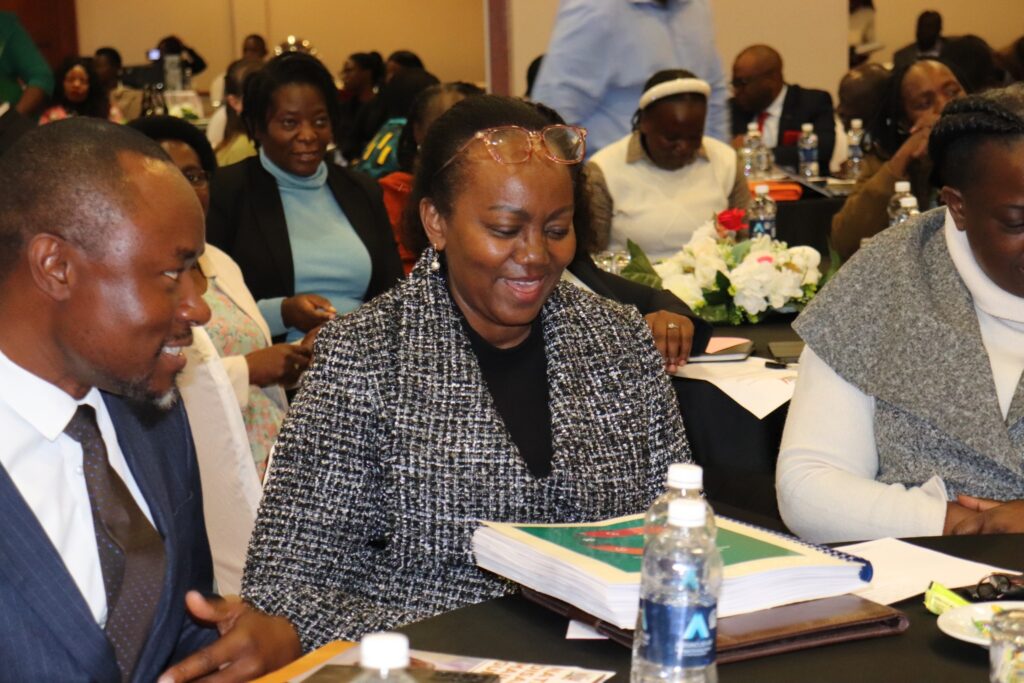Lusaka, Zambia – Community Development and Social Services (MCDSS) Minister, Doreen Mwamba, has called on all government ministries and agencies to integrate disability inclusion into all programming and budgeting processes.
In a speech delivered on her behalf by MCDSS Permanent Secretary Angela Kawandami during the launch of the 2025 National Disability Policy and Disability Mainstreaming Guidelines, Ms. Mwamba emphasized that the event represents not only a call to action but also a national commitment and a shared vision for a Zambia where every citizen, regardless of ability has equal opportunity to participate in and benefit from all aspects of life.
The Minister highlighted the persistent inequalities faced by persons with disabilities, including limited access to basic services, employment, infrastructure, and communication.
She noted that these challenges continue to contribute to high poverty rates among persons with disabilities, an issue that demands urgent and sustained action.
To this end, she stated that the Government is committed to moving beyond rhetoric into an era of implementation, accountability, and impact, with the newly launched policy and guidelines serving as key instruments in that transformation.
“The guidelines provide a practical framework to dismantle the structural and attitudinal barriers that continue to marginalize persons with disabilities,” she said.
“Their implementation will pave the way for tangible progress, enabling persons with disabilities to realize their full potential and contribute meaningfully to Zambia’s social, economic, cultural, and political development,” she added.
Ms. Mwamba also expressed gratitude to cooperating partners, civil society, organizations for persons with disabilities, government ministries, and all stakeholders who contributed financial and technical support towards the development of the two documents, commending their unwavering commitment to upholding the rights and dignity of persons with disabilities.
And UNDP Resident Representative, James Wakiaga, in a speech delivered by Assistant Resident Representative and Governance Advisor Gregory Saili, reaffirmed the United Nations Development Programme’s support for Zambia’s efforts to improve the welfare of persons with disabilities.
He emphasized UNDP’s commitment to ensuring that persons with disabilities have a voice in monitoring public resource allocation and expenditure.
Meanwhile, Zambia Agency for Persons with Disabilities Board Chairperson, James Kapembwa, urged all stakeholders to come together to ensure the full implementation of the policy and guidelines.
He called for their translation into budgeted actions, alignment with sectoral strategies, and the establishment of robust monitoring systems to keep disability inclusion central to national development.
Meanwhile, the Parliamentary Caucus on Disability Inclusion and Rights also pledged its support, committing to advocate for increased budgetary allocations, capacity building, and legislative reforms necessary for the realization of the policy’s goals.
Speaking on behalf of the Caucus, Lundazi Member of Parliament Brenda Nyirenda reiterated Parliament’s readiness to champion disability inclusion through legislative oversight and continued advocacy.
And in his vote of thanks, Mr. Lackson Chipato, who spoke on behalf of persons with disabilities, appealed to Parliament to consider increasing the number of nominated Members of Parliament with disabilities from three to at least 10 under Bill 7 currently under discussion.
He argued that the current proposal of 3 out of 45 nominated MPs is insufficient for meaningful representation.
Mr. Chipato also extended appreciation to the government and stakeholders for developing the two key documents and affirmed the commitment of persons with disabilities to actively contribute to their implementation.

